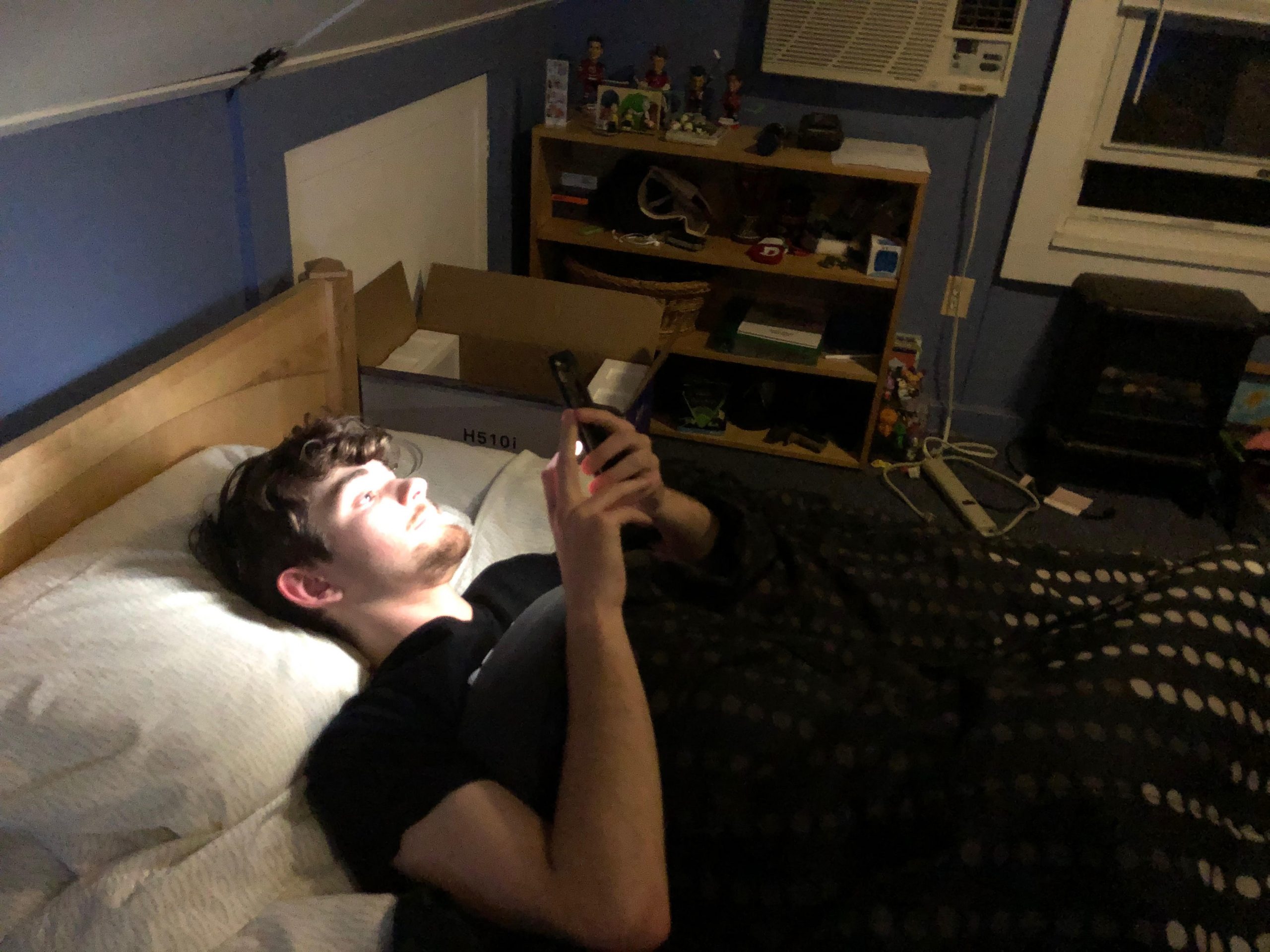Tell me if this sounds familiar: I stress through my day, try to get caught up on ALL the responsibilities for work life, family life- all the “things”- and by the time I make some headway… it’s time for bed. I do my little jammies, brush teeth, whatnot routine, and I’m in bed past my bedtime. And I’m awake. So I go on my phone to scroll through social media posts, catch up on my friends’ lives (if I can’t get together, at least this keeps me connected!), play a couple (way too many) games, surf the web. I KNOW it’s late. I KNOW it’s time to sleep. I KNOW I will regret this tomorrow. And I stay up anyway. Then tomorrow I wake up, overtired and cranky that I did it AGAIN.
A group of researchers in the Netherlands did a study on this in 2014, calling it “bedtime procrastination.” There are theories about why we do this, most postulating that our lives are so overfull of responsibilities and obligations that we feel we have to avenge that loss with some “me time” when it’s bedtime. Regardless of the “why,” it causes us to literally lose sleep, and start the next day overtired. We might have extra caffeine to help us wake up- starting a bad cycle of sleepless nights and tired days. We might experience brain fog, attention difficulties, memory issues… sleep disorders have even been linked to high blood pressure, heart disease, and kidney disease (and the list goes on! Here’s the research) There are so many aspects of health that are impacted by poor sleep.
So what can you do to take better control of this? Here are some general tips that might get you started in breaking the cycle:
- Keep a consistent bedtime. Every night. Just like when you were a kid- there’s NO kid around that doesn’t know his bedtime (and all of his friends’, and who gets to stay up the latest). Be firm with yourself, like Mom was. Pick a consistent time and stick to it. Every day. Even on weekends.
- Avoid caffeine, alcohol, large meals, and vigorous exercise for at least a few hours before bedtime, if not longer. All of these can cause you to either be awake when you head into bed, or restlessness upon waking in the middle of the night.
- Make your bed a sleep haven. Cuddle under a comfy blanket. Keep the room temperature a bit cool so you can snuggle up. Don’t watch tv in bed or use any electronic devices in bed. Keep those electronics out of the room, or as far away from you as you can. Bed is for sleeping. That’s it. Train your body and mind to recognize that bed means sleep.
- NO NAPS. We’re trying to re-establish circadian rhythms here. Up in the morning, sleep at night. Naps are a great way to confuse your body’s wake/ sleep cycles.
- Establish a bedtime ritual. Same as for little kids. My son knows that, right at 7:30, he goes upstairs, washes his hands and face, pees, and gets his jammies on. He snuggles into bed with Daddy, and they read a story together. Lights go out, they reflect on the day and chat about tomorrow, and DONE. Sleep. That’s it. Be your own parent. Set up a routine and stick to it. Same time, same routine, every night.
- Try grounding. The best way, I find, is to get up, get outside, and greet the sun in your bare feet. There’s something to that feet-to-Earth energy coupled with the buzz of a rising sun energy that resets those circadian rhythms like nothing else. Same thing in the evening. Watch that sun fade with feet-to-Earth. It’s a calming, waning energy that invites relaxation and winds down the day.
- Snack on some foods that contain vitamin B6. Bananas, wheat germ, and sunflower seeds are some options. These can enhance the conversion of tryptophan into serotonin, which helps melatonin, which is one of the current buzzwords relating to sleep these days. Basically, these are all components that play a role in your body’s sleep cycle. I personally prefer getting my nutrients through food rather than supplements, and always look to food first as a natural remedy.
These are some general basics that can kick start your re-regulation of better sleep. There are lots of other ways to tackle sleep habits naturally, including herbs, supplements, guided meditations, exercise habits… so many options that can be tailored to you, personally, to suit your needs, your specific difficulties, and your lifestyle. If the general strategies just won’t cut it for you, and you want some help discovering a customized approach, I’m happy to help! Contact me and we can work together to develop strategies that will work for you.


